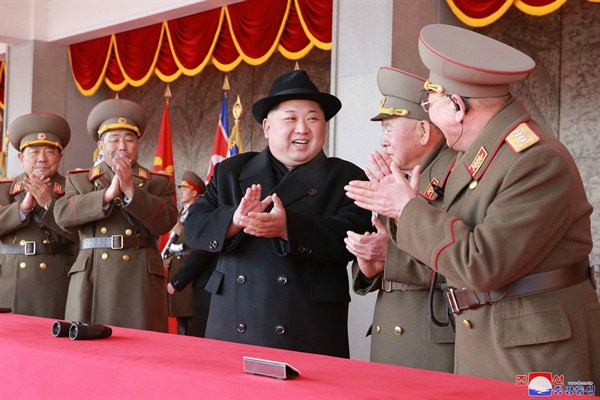For many years, North Korea’s relationship with the outside world has endlessly cycled between belligerence and crisis, always backed by an endless chorus of hysterical hostility. Recently, though, things seemed to be heading in a very different direction. Since late March, North Korean leader Kim Jong Un has held two cordial meetings with Chinese President Xi Jinping. And during a landmark April summit with South Korean President Moon Jae-in, Kim promised to work toward an official end to the Korean War and the denuclearization of the Korean Peninsula. The next big step for Kim was a planned June meeting with U.S. President Donald Trump, to be held in Singapore, as Trump announced last week.
But earlier this week, the chill returned to Pyongyang. Kim threatened to cancel his meeting with Trump, ostensibly because of long-planned and routine air force drills between the United States and South Korea. A senior North Korean official warned that the June summit was off if the U.S. pushed for denuclearization—the Trump administration’s primary objective. Kim also canceled scheduled talks with South Korean officials over the joint military exercises. What looked like growing momentum toward detente between North Korea and its adversaries suddenly hit a snag. While this might seem perplexing in Washington, it actually makes perfect sense given the way Kim thinks about protecting his nation’s security and sustaining his personal grip on power.
Holding on to power is Kim’s primary goal. What Americans sometimes forget is that the most dangerous threats he faces are internal. Kim knows full well that the U.S. will not invade and oust him under any conditions other than a North Korean nuclear attack on another nation or a full-scale invasion of South Korea. What does worry him is the loyalty of his own people, particularly the military and the elites.

